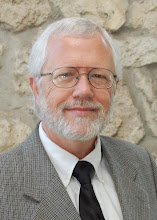"Secular Judaism" may sound like a contradiction in terms. But according to at least one study, up to half of all American Jews believe in separating faith and public life.
For them, there's Cultural Judaism. Its creator, the Center for Cultural Judaism, aim to help secular Jews "celebrate their Jewish identity and pass it on to the next generati on."
on."
The main attraction is the back articles from the group's Contemplation magazine, contributing some fresh thinking. One article, by Jonathan Sarna of Brandeis, honors secular Jews from the 17th century thinker Baruch Spinoza to the 19th century feminist Ernestine Rose to the 21st century record manager David Katznelson.
Sarna sees a kind of renaissance of Jews in recent years. He says the Cold War gave secularism a bad name. But since the fall of communism, he notes the rise of institutions like Heeb magazine and the National Yiddish Book Center.
European Jewish writer Diana Pinto's essay is a sad irony. She argued that multicultural tolerance gave room for Jews to take part fully in European society. An editorial note says the 1999 essay predated a flare-up in anti-Semitism, but was again relevant since the outbreak faded. How sad: anti-Semitism has returned, since the Gaza incursion by Israel -- and European Jews once again have to keep their heads down.
Cultural Judaism also has some absorbing news articles, many from the Jewish Telegraphic Agency. The stories discuss matters like humanism, children of interfaith marriages and the "December dilemma" -- whether a blended family should celebrate both Christmas and Hanukkah.
One of the articles is a review of Secular Culture & Ideas, a site worth its own bookmark. That site digs into issues like Hanukkah, female prophets, and Jewish involvement in sports.
For them, there's Cultural Judaism. Its creator, the Center for Cultural Judaism, aim to help secular Jews "celebrate their Jewish identity and pass it on to the next generati
 on."
on."The main attraction is the back articles from the group's Contemplation magazine, contributing some fresh thinking. One article, by Jonathan Sarna of Brandeis, honors secular Jews from the 17th century thinker Baruch Spinoza to the 19th century feminist Ernestine Rose to the 21st century record manager David Katznelson.
Sarna sees a kind of renaissance of Jews in recent years. He says the Cold War gave secularism a bad name. But since the fall of communism, he notes the rise of institutions like Heeb magazine and the National Yiddish Book Center.
European Jewish writer Diana Pinto's essay is a sad irony. She argued that multicultural tolerance gave room for Jews to take part fully in European society. An editorial note says the 1999 essay predated a flare-up in anti-Semitism, but was again relevant since the outbreak faded. How sad: anti-Semitism has returned, since the Gaza incursion by Israel -- and European Jews once again have to keep their heads down.
Cultural Judaism also has some absorbing news articles, many from the Jewish Telegraphic Agency. The stories discuss matters like humanism, children of interfaith marriages and the "December dilemma" -- whether a blended family should celebrate both Christmas and Hanukkah.
One of the articles is a review of Secular Culture & Ideas, a site worth its own bookmark. That site digs into issues like Hanukkah, female prophets, and Jewish involvement in sports.

No comments:
Post a Comment